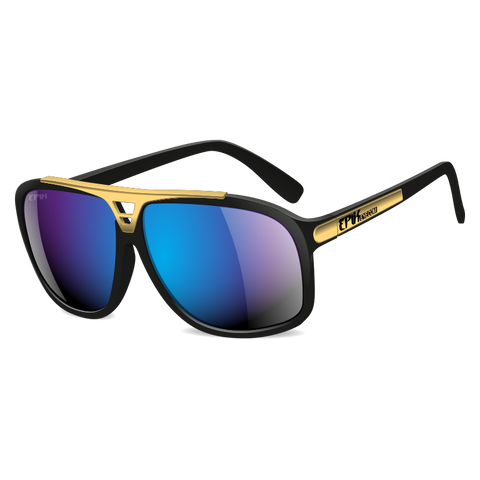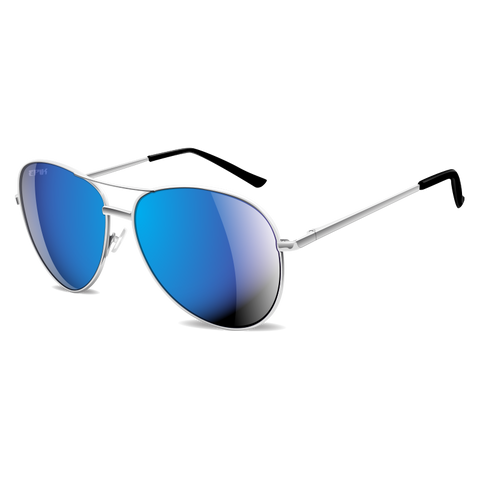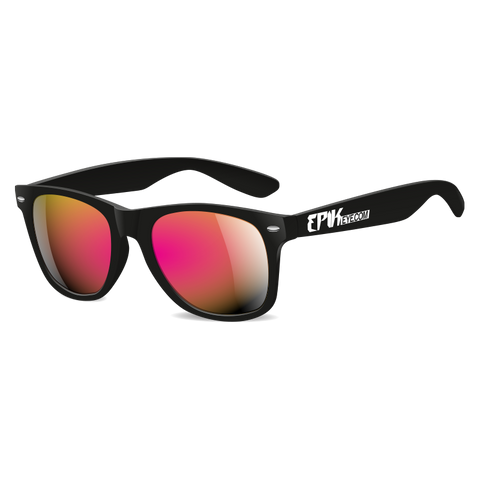EPIK CODENAME: KILO
Engineered for EPIK athletes, drivers and active everyday people, KILO by EPIK Eyewear introduces premium polarized lenses in a sleek wrap around polycarbonate frame. Designed to achieve maximum performance and full protection, KILO provides the perfect mix of form and function.
Drivers, fisherman, and photographers were some of the first to use polarized lenses. Reducing glare can ease the eye strain drivers feel from long hours on the road. Fishermen can often see under the surface of water using the lenses, which helps them to see fish or other objects. Photographers use polarizing filters on camera lenses to enrich the images they capture by giving them more contrast, and to increase the range of effects they can produce.
Features:
- Premium 1.1mm polarized scratch and shatter resistant lenses
- Certified UV400 protection
- Polycarbonate glossy finish frames
- What are the advantages of polarized lenses?
- Improves visual comfort
- Improves contrast and visual clarity
- Reduces eyestrain
- Allows for true perception of colours
- Reduces reflections and eliminates glare
How do polarized lenses work?
Light reflected from surfaces such as a flat road or smooth water generally is horizontally polarized. This means that, instead of light being scattered in all directions in more usual ways, reflected light generally travels in a more horizontally oriented direction. This creates an annoying and sometimes dangerous intensity of light that we experience as glare.
How do polarized lenses compare to standard tinted sunglasses?
Regular non-polarized sun lenses indiscriminately filter all light whether it is horizontal or vertical. Glare is dampened, but not eliminated. More importantly, by filtering all components of light, visual acuity is diminished. On the other hand polarized lenses allow in the vertical component of light, which is preferred for clear vision, while eliminating the easily scattered and skewed horizontal component of light. Vertically aligned light is preferred because it respects the natural tendency of the visual system to focus on the vertical component of an image.
Why are polarized sunglasses beneficial for water sports?
The glare of the sun on the sea and other water surfaces is highly polarized. Indeed, the glare can be almost completely horizontally polarized, depending on the height of the sun. In addition, all reflections from objects above water are partially polarized. These include clouds and even the sky (the reflected sky gives most of its blue colour to the sea). These are examples of polarization by reflection. Although the light from the sun is not polarized, it can be separated into two polarized components that are reflected and transmitted in different amounts by the surface of the water. More of the horizontal component will be reflected than the vertical component, thus partially polarizing the reflected light. With polarized sunglasses they will stop the glare and make the sea appear more transparent enabling you to see fish and rocks below the surface.
Why are polarized sunglasses beneficial for driving?
Polarized sunglasses help when driving a car by reducing those bright reflections of the sun on the cars ahead. They tend to be horizontally polarized, thus perfect for vertically polarized sunglasses. The reason is that the surfaces that you see on the car in front of you (the back window, the rear door, and even the roof) is slanted towards you, while the sun will be more or less aligned in the vertical plane through both cars. Polarizing lenses will provide higher definition vision for driving, remove dazzling effects and reduce eye fatigue.
All EPIK Eyewear frames are polycarbonate
Polycarbonate frames are much more durable and tougher than standard plastic whilst weighing ten times less than glass. EPIK frames are strong enough to stand up to the abuse you throw at them every day.
All EPIK Eyewear lenses offer UV400 protection
You cannot tell how much UV protection a pair of sunglasses will provide simply by their price, colour or by the darkness of the lenses, however all EPIK lenses offer UV400 protection from the sun's harmful ultraviolet rays, which refers to filtering out 99-100% of UVA and UVB light with wavelengths up to 400 nm.











